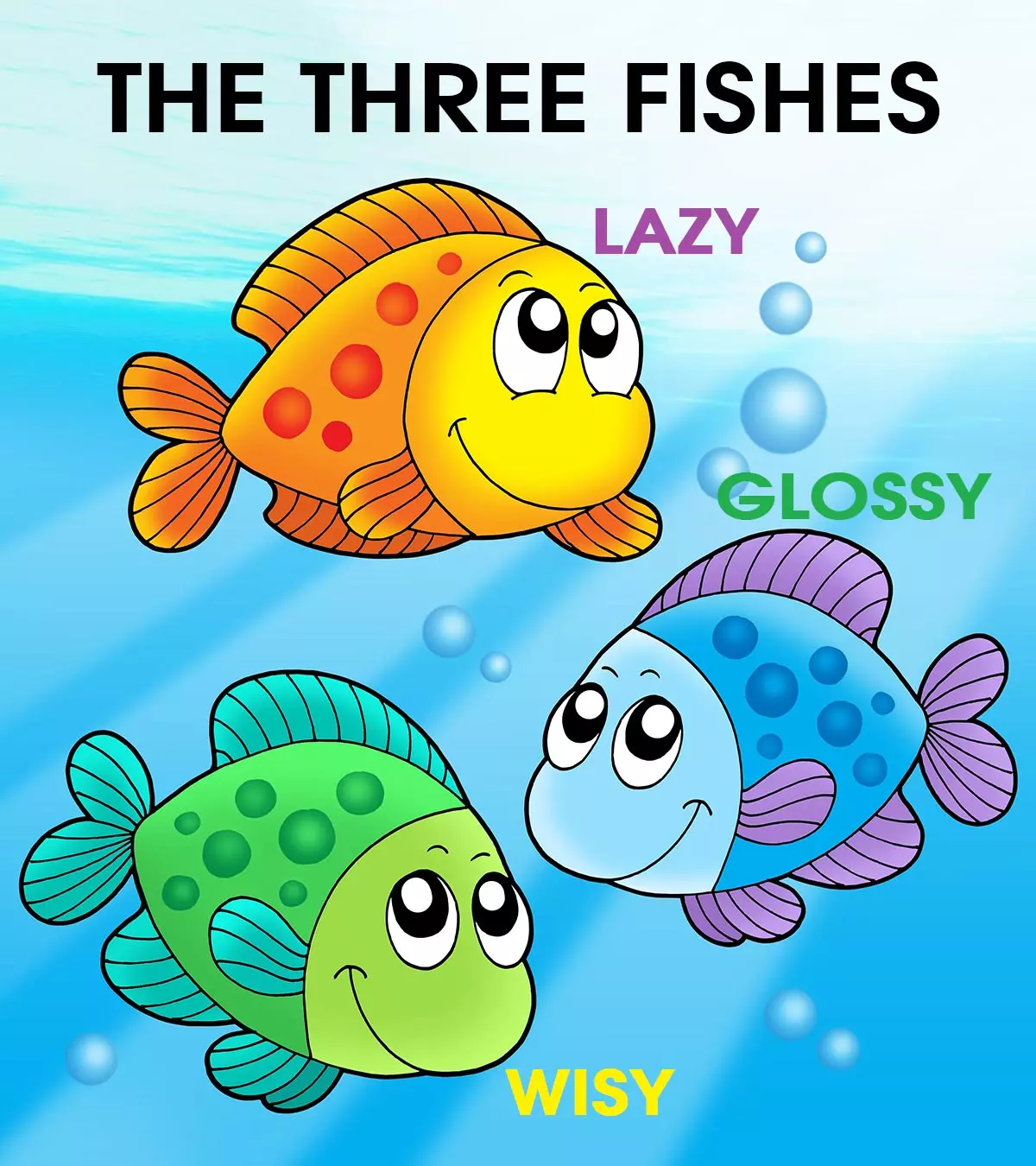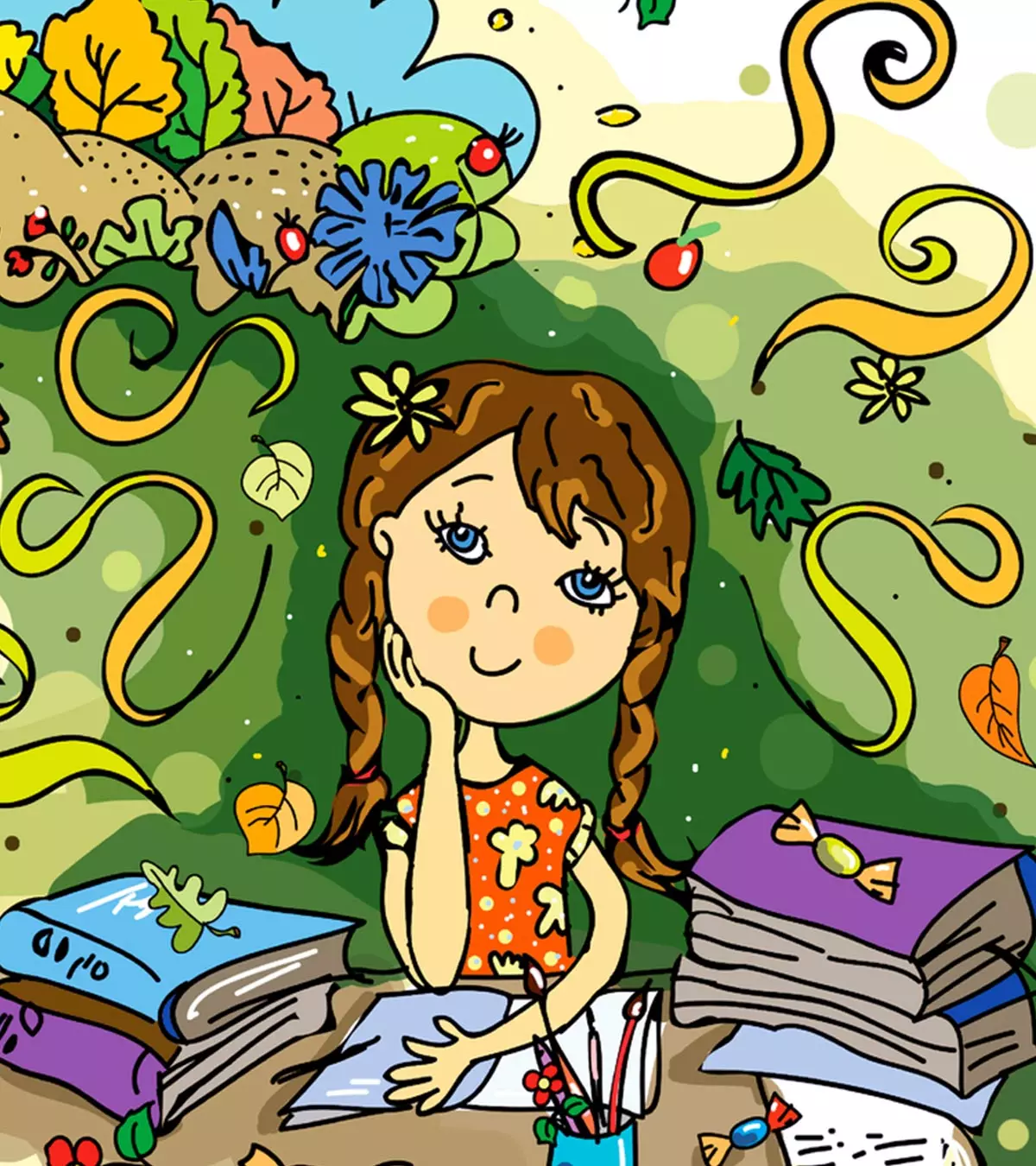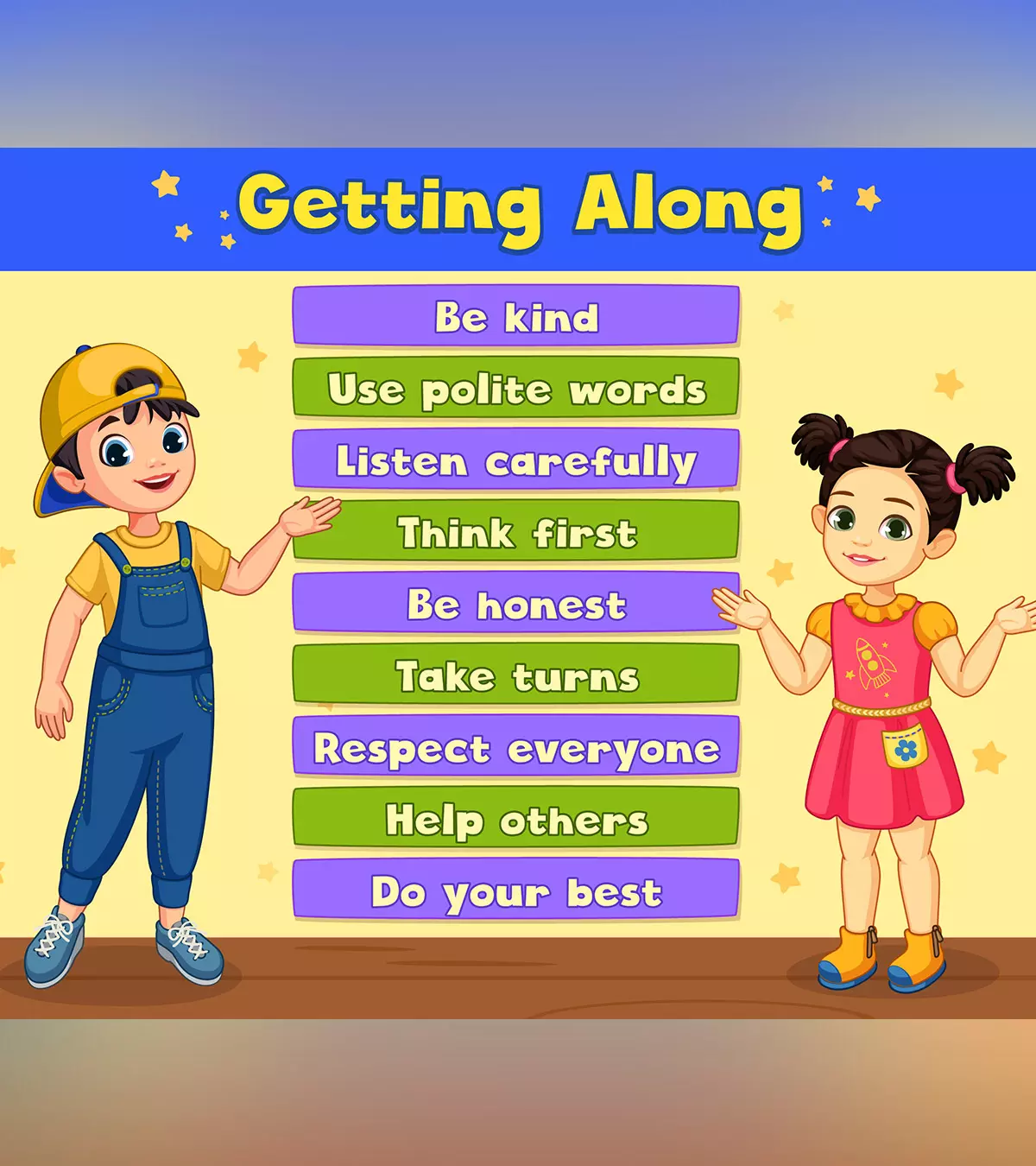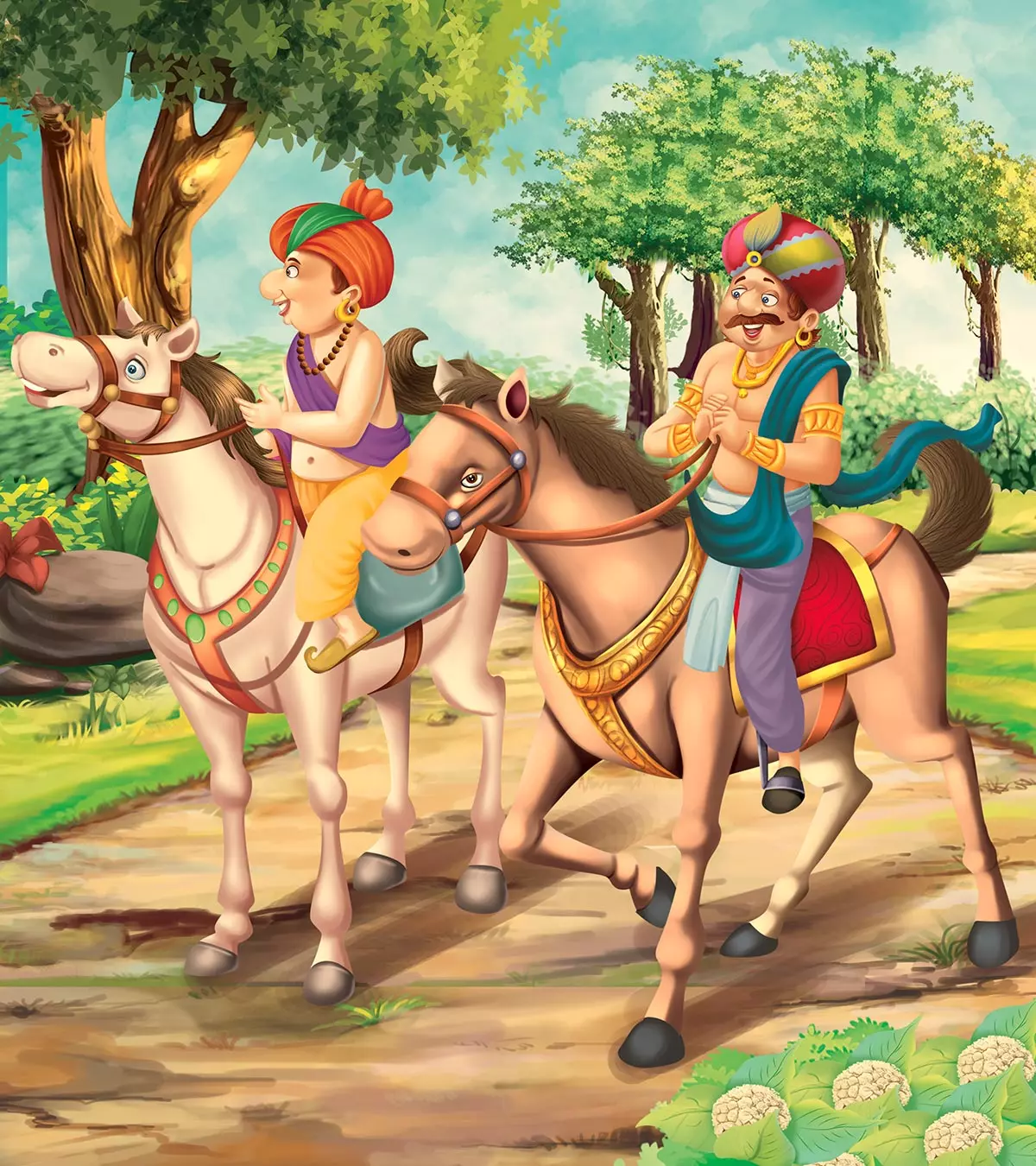
Image: Shutterstock
Children love listening to stories, making them an effective medium for communicating with them. Moral stories are an excellent way to help your growing child inculcate virtues, values, and positive attributes such as compassion, generosity, kindness, patience, empathy, perseverance, determination, and leadership and remember them throughout their lives. These moral values shape a person’s character, personality, and behavior. The fable of three fishes is an example of one such moral story from the Panchatantra. Even if children may not fully understand the message hidden in the moral stories when they are very young but will eventually recall and rediscover as they grow older. Read on as we present the three fishes story in this post, along with a valuable moral for your little one.
Key Pointers
- Telling stories can serve as an excellent bonding time and aid children’s cognitive and emotional development.
- A story with a moral lesson can impart good virtues in children.
- Taken from the Panchatantra, this story revolves around three fish living in a small pond.
- This story teaches children about wisdom, intelligence, and teamwork.
The Three Fishes Story
The parable of the three fishes is an interesting and engaging one. It is also one of the popular moral tales from the Panchatantra. For those unfamiliar with the Panchatantra, it is a collection of animal fables and magical stories spread across five books. It was compiled between the 1st and 5th centuries AD by an Indian author named Vishnu Sharma, or Bidpai (‘court scholar’) (1) (2). Each tale in these books comes with a lesson on morals and ethics, as it was used to teach wisdom to future rulers. So, read on to impart a valuable lesson to your child.
- Once upon a time, three fish lived in a pond. They were close friends and were living together for years, in the same pond.
- One day, while on his journey, a passing fisherman saw that the pond was filled with fish.
- He was surprised and delighted and immediately informed his fellows about it. Together, they decided to come the next morning and catch those fish.
- One of the three fish, who was also the wisest, heard the conversation between the fisherman and his fellows.
- It devised a strategy, immediately rushed to the other two, explained the entire situation, and proposed a plan to leave the pond immediately and move to another place.
- The second fish agreed and decided to move out from the pond quickly.
- The third fish, however, mocked them. He felt that the pond was their home, and they must not leave their home.
- Since the other two fish were unable to convince the third fish, they left the pond and decided to let him follow his own course of action.
- The next day, the fisherman and his fellows cast their nets and caught plenty of fish. They also managed to catch the third fish, who had refused to leave the pond due to its foolishness, while the other two fish, who had left earlier and displayed cleverness, were rescued and rewarded.
The Moral
One of the most prominent lessons you can learn from the story of the three fishes is the importance of wisdom. It shows how important it is to act wise when you foresee a problem.
This story, among many other stories from the Panchatantra, instills inspiration and motivation in children. It also imparts valuable life lessons, such as the importance of wisdom, intelligence, friendship, teamwork, and cooperation.
It also teaches the concept of consequences and how the lack of foresight can bring about one’s doom.
Storytelling – Why Is It Important?
Your child is now growing and learning new things every day. It is during this stage of development that they need to be exposed to good values and knowledge, and storytelling is a great and interactive way to do that. Research shows how listening to stories engages kids and stimulates brain activity in them as it requires active imagination and visualization (3). Here are some other benefits of storytelling (4) (5):
- Improving early childhood literacy: Storytelling helps inculcate the habit of reading in children. It helps improve vocabulary and allows children to learn new words. It also promotes brain development by sharpening their memory, focus, and concentration.
- Expanding knowledge: It helps them enhance their knowledge and learn facts about animals, plants, objects, and different parts of the world. It imparts knowledge of different cultures and sparks their curiosity and imagination.
- Enhancing thinking skills: Hearing stories widens kids’ horizons and allows them to think from a broader perspective. It also helps build better thinking skills and improves their imagination and creativity.
- Strengthening emotional intelligence: Storytelling is an activity that helps kids grow both emotionally and mentally. It provides emotional intelligence in children as they try to understand each character’s traits and emotions and empathize with them.
- Imparting lessons on ethics: Most children’s stories and fables have a moral component, teaching them the importance of honesty, gratitude, wisdom, truthfulness, and kindness. Learning these lessons helps kids become better decision-makers and problem-solvers when facing moral dilemmas.
- Boosting communication skills: Listening to stories without interrupting makes kids more patient, receptive, and empathetic to others’ opinions and thoughts. This helps kids expand their social circle by becoming good listeners and communicators.
Best of all, most children’s stories are short and crisp, and they won’t take a lot of time from your busy schedule. So now there’s no reason to ditch that bedtime story – is there?
Frequently Asked Questions
1. What do the three fishes represent in the story?
The three fishes in the story represent the different characteristics of a person. The first one describes a wise and caring character and someone with foresight and quick action. This wise fish came to its friends to inform them about the upcoming danger or risk. The second fish represents intelligence, who listens to their wise friend and reacts on time. The third fish represents a foolish character who did not listen to its friends and ended up in trouble. This shows that stubbornness and negligence result in harm.
2. How did the story’s ending illustrate the importance of friendship?
While the moral of this story is regarding the importance of wisdom, it also illustrates the importance of friendship. As soon as the first fish learned about the trouble, being a true friend, it immediately went to its friends to inform them. The second fish also trusted the friend’s word and acted immediately.
3. How does the story of the three fishes relate to real-life situations?
The story of the three fishes could be considered one of the simple yet inspirational stories with morals for kids. It teaches us the significance of wisdom and adaptability in navigating real-life situations. It also teaches us how to plan and manage situations when we anticipate problems. Furthermore, it emphasizes the importance of trusting our companions and making wise decisions.
Every childhood narrative includes a moral lesson to inculcate values and principles in children, and similarly, this Panchatantra’s story of the three fishes is one such moral narrative. It revolves around three fishes that were close friends and have spent many years living in the same pond. The story emphasizes the value of wisdom and how to get out of the situation without losing. Read this story to your child before bedtime or in your free time to strengthen your relationship with them while also teaching them important life lessons.
Illustration: The Story Of Three Fishes For Your Kids To Read

Image: Stable Diffusion/MomJunction Design Team
References
- Panchatantra (Anvar-I-Suhayli, The Fables of Bidpai).
https://expo.uoregon.edu/spotlight/medieval-manuscripts/feature/panchatantra-anvar-i-suhayli-the-fables-of-bidpai - The Panchatantra.
https://sites.pitt.edu/~dash/panchatantra.html - Miyuki Yabe et al.; (2018); Effects of storytelling on the childhood brain: near-infrared spectroscopic comparison with the effects of picture-book reading.
https://pmc.ncbi.nlm.nih.gov/articles/PMC6305786/ - Importance Of Storytelling In Your Child’s Overall Development.
https://www.planetspark.in/blogs/importance-of-storytelling-in-your-child-overall-development - Reading and storytelling with babies and children.
https://raisingchildren.net.au/babies/play-learning/literacy-reading-stories/reading-storytelling
Community Experiences
Join the conversation and become a part of our nurturing community! Share your stories, experiences, and insights to connect with fellow parents.
Read full bio of Elisa Yi
Read full bio of Manjiri Kochrekar
Read full bio of Harshita Makvana
Read full bio of Sakshi Mishra



















